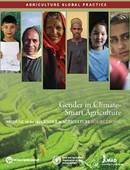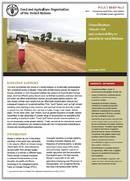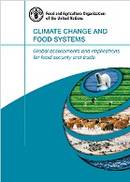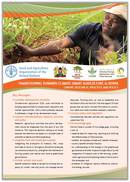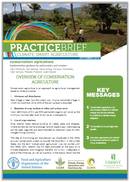Publications
This module for the Gender in Agriculture Sourcebook co-published by the World Bank, IFAD, and FAO gives evidence of tested practices and innovative approaches to gender mainstreaming in CSA useful to development agencies and practitioners, policymakers, civil society, researchers and academics, as well as those working in the private sector.
This collection of findings by a group of scientists and economists looks at climate change impacts on food and agriculture, at global and regional levels, over the past two decades.
The evidence shows the impacts of global warming and discusses the consequences for food security, health and nutrition, water scarcity and climate adaptation and presents different policy responses.
The brief outlines the ways in which climate-smart agriculture can be promoted from government to field level. It follows a two-day consultation in Kenya that brought together researchers, development workers, policy makers and producers in 2014. The effort was supported by the Ministry of Agriculture, Livestock and Fisheries of the Government of Kenya, the Food and Agriculture Organization of the United Nations (FAO), the World Agroforestry Centre (ICRAF) and the CGIAR Research Program on Climate Change, Agriculture and Food Security (CCAFS).
Conservation agriculture (CA) can increase resilience to climate change and has the potential to contribute to climate change mitigation. The benefits of CA are highly site-specific. Innovative approaches are needed to overcome barriers for uptake of CA by smallholders.

